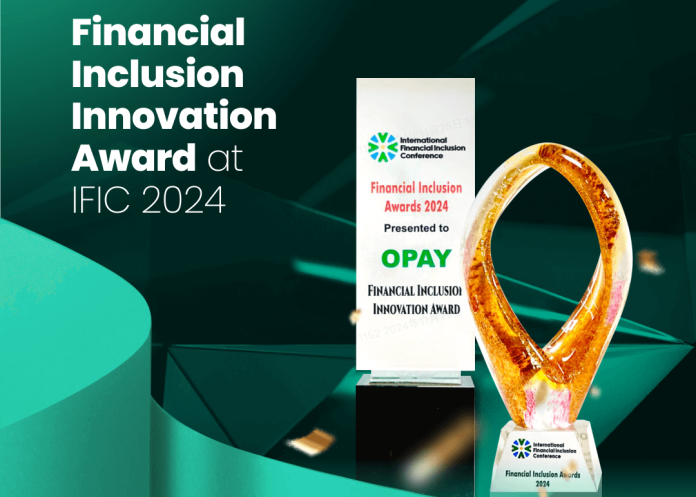Opay Digital Services Limited, commonly known as Opay, has won the prestigious Financial Inclusion Innovation Award at the 2024 International Financial Inclusion Conference in Lagos.
The company, formerly Paycom Nigeria Limited, is a fintech mobile money operator founded by Zhou Yahui in 2013 with headquarters in Lagos, Nigeria.
It is among Nigeria’s four major fintech companies: Moniepoint Inc., Kuda, and PalmPay.
The award recognizes OPay’s efforts to enhance financial access and provide innovative financial solutions across Nigeria.
The conference, organized by the Central Bank of Nigeria (CBN) and international partners like the World Bank, focused on fostering inclusive economic growth through financial inclusion.
OPay’s mobile payment platform and digital financial services have improved access to financial services, especially for underbanked communities. The company has provided secure and accessible digital financial services to millions of Nigerians.
The CBN honoured OPay for advancing Nigeria’s financial inclusion goals, aiming for a 95% financial inclusion rate by 2024.
“This recognition highlights OPay’s dedication to providing innovative, compliant, and inclusive financial solutions,” said Dauda Gotring, OPay’s CEO.
The award assessed metrics such as regulatory adherence, technological innovation, customer impact, and contributions to the CBN’s financial inclusion goals. OPay stood out for delivering secure and accessible financial solutions.
The company says it remains committed to leveraging technology within regulatory frameworks to build an even more inclusive financial ecosystem that supports economic growth.
Earlier in October, OPay also won the “Mobile Payment Solutions Provider of the Year” award at the 12th Annual Banks and Other Financial Institutions Awards.
Comment, Like 👍, share this article, and Follow us on our social media handles.








A big congratulations to Opay!
They have done so well in discharging their duties to their customer and ensuring security of their customer funds much better than the mainstream banks.